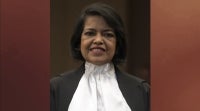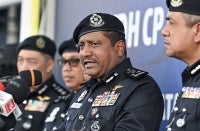Agong steers the country out of three political crises
DR ZAHARUL ABDULLAH
The six-day political turmoil that plagued the country involving the formation of a government after the 15th General Election (GE15) has highlighted the important role of the country which is the Yang di-Pertuan Agong.
Since the Yang di-Pertuan Agong, Al-Sultan Abdullah Ri'ayatuddin Al-Mustafa Billah Shah was crowned 16th on July 30, 2019, His Majesty faced three political crises namely the transition of the government from Pakatan Harapan (PH) to Perikatan Nasional (PN) on March 1, 2020, the transition of the PN government to the Barisan Nasional (BN)-led government on August 21, 2021, and the latest is the turmoil of the formation of the federal government following GE15 as a result of the hung Parliament.
However, His Majesty managed to steer the country through all three political crises in a short period of time.
This success can be backed up by some of the leadership qualities and roles played by Tuanku.
Friendly, caring and rakyat-centric
It is well known that His Majesty is friendly and rakyat-centric.
On various media platforms, we can see His Majesty often reach out and mingle with the people during times of ease and difficulty.
The humility of the King towards the people was evident through his actions such as when His Majesty stopped by at the roadside stalls, ate at mamak restaurants, or even fast food chain KFC with the Queen to be closer to the people.
More importantly, His Majesty also expressed concern when the people are facing difficult times. This can be seen when he had several times stopped the motorcade and checked on accident victims while the entourage encountered accidents en route.
Apart from that, His Majesty is also friendly and accommodating to all walks of life including the elderly, patients, children and those affected by disasters such as flood victims.
The warmth and concern for the people is also shared by the Queen, especially in issues close to the heart of Her Majesty such as in terms of cooking and treatment assistance to couples who have difficulty having children.
Thus, the friendly, caring and soulful nature of Al-Sultan Abdullah put the interests of the people first by leading and hastening efforts to end the political crisis, in line with the powers allocated to His Majesty in the Constitution.
Neutral, thoughtful and conscientious
In order to exercise the power of the Yang di-Pertuan Agong fairly and effectively, His Majesty remains neutral and above partisan politics.
This neutral stance is important to prevent the legitimacy of the appointed government from being disputed by the people.
This stance can be seen when Al-Sultan Abdullah held meetings with the heads and coalition of the political parties as well as members of the Dewan Rakyat to appoint the Prime Minister following the Sheraton coup and the collapse of the PN government.
In the case of the 'hung Parliament', His Majesty also held meetings with the heads of the PH and PN coalition as well as representatives of BN and GPS.
His Majesty decreed that no party coalition had an easy majority during his initial meeting with the members of the Dewan Rakyat for all three political crises.
This situation shows that His Majesty is neutral and only in favour of a political coalition which has a simple majority to form a government.
His Majesty's wisdom in this political crisis can be seen through the method of determining the acquisition of the majority's trust.
In the above political crises, the heads of the coalitions of the respective political parties announced that they have a simple majority through the procurement of statutory declarations (SDs) from members of the Dewan Rakyat.
However, some of these SDs overlap between the two groups who sent the SDs to His Majesty.
This situation prompted His Majesty to convene a meeting with the members of Dewan Rakyat to confirm the SD even though this method ultimately failed to form a government.
In the case of the 'hung parliament', the wisdom of Al-Sultan Abdullah was revealed when His Majesty's proposal and advice on the formation of a unity government was accepted by the majority of the coalition of political parties and ended the turmoil of the formation of a new government.
In addition, His Majesty is also a conscientious person in decision-making.
This can be seen through the actions of His Majesty who consulted with the Malay Rulers to discuss the government's application to declare an Emergency to combat the Covid-19 pandemic.
Through this consultation, Al-Sultan Abdullah has decided to reject the first application for an Emergency proclamation by the government but approved the second application for the Emergency proclamation from January 11 to August 1, 2021.
In addition, consultations with the Malay Rulers were also held in the case of 'Hung Parliament' to enable His Majesty to make decisions in the interests and well-being of the country and the people.
This situation shows that His Majesty is a conscientious person in decision-making, takes into account diverse views and attaches importance to consensus and collective decisions.
Check and balance, a national peacemaker
Apart from the official jurisdiction of His Majesty as stated in the Federal Constitution, one of His Majesty's less prominent roles is the role of check and balance against the executive (cabinet).
In the context of pandemic management, there is an excessive concentration of power over the institutions of the Prime Minister, the National Security Council (MKN), the Ministry of Health Malaysia (MOH) and the Ministry of International Trade and Industry (MITI).
This situation led to the formation and implementation of government-centred policies such as the implementation of various phases of the Movement Control Order (MCO), Emergency Ordinance, National Recovery Plan (NRP) and Public Health Action.
In the context of the closure of Parliament and the State Legislative Assembly (DUN), the opposition parties cannot effectively play a check and balance role, especially when the cross-state and district bans are enforced.
In this context, His Majesty emerged as an effective check and balance institution to the cabinet when His Majesty did not approve the cabinet's advice to revoke the Emergency Ordinance.
On the other hand, His Majesty ordered the government to open Parliament to debate and enact the Emergency Ordinance before the Emergency ends on August 1, 2021.
Although the Emergency Ordinance was not debated and enacted during the sitting of Parliament, the government's non-conformance was the trigger that led to the collapse of the PN government.
In the 'hung parliament' crisis, His Majesty also played an important role as the 'National Peacemaker' when His Majesty proposed the formation of a unity government.
Through this proposal, His Majesty wants all coalitions of political parties to stop strife and make peace and unite to form a stable, inclusive, and cohesive government.
Without His Majesty's proposal, Barisan Nasional (BN), which served as the 'King Maker' in the formation of the government following GE15, will continue to remain neutral and function as the opposition.
Without the cooperation of BN en bloc, a unity government led by Prime Minister Datuk Seri Anwar Ibrahim would not have been formed.
Not only that, His Majesty’s proposal also changed the stance of the Sarawak Parties Coalition (GPS) and the Sabah People's Coalition (GRS) from supporting Perikatan Nasional (PN) to join theunity government.
Without the intervention of the Agong as the 'National Peacemaker', the ’hung parliament' situation will continue to plunge the country into a prolonged political crisis that undermines the country's critical and more challenging development agenda in the context of a dynamic and uncertain international economy.
In fact, the leadership qualities and important roles played by His Majesty have managed to bring the country out of three political crises involving the instability of the government and the difficulties of forming the government.
The centrality and role of the Yang di-Pertuan Agong in the country's politics should be highlighted so that the people can understand and appreciate the concept of a Constitutional Monarchy which is important to ensure the stability and prosperity of Malaysia. Daulat Tuanku!
*Dr Zaharul Abdullah is a Lecturer in Policy Studies Programme, Faculty of Business, Economics and Social Development of Universiti Malaysia Terengganu.
Download Sinar Daily application.Click Here!














